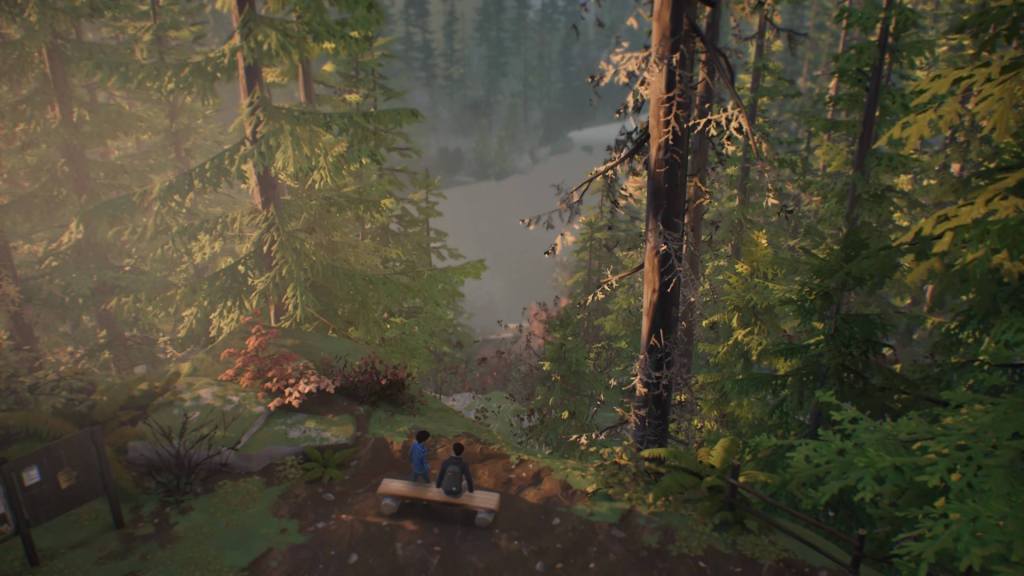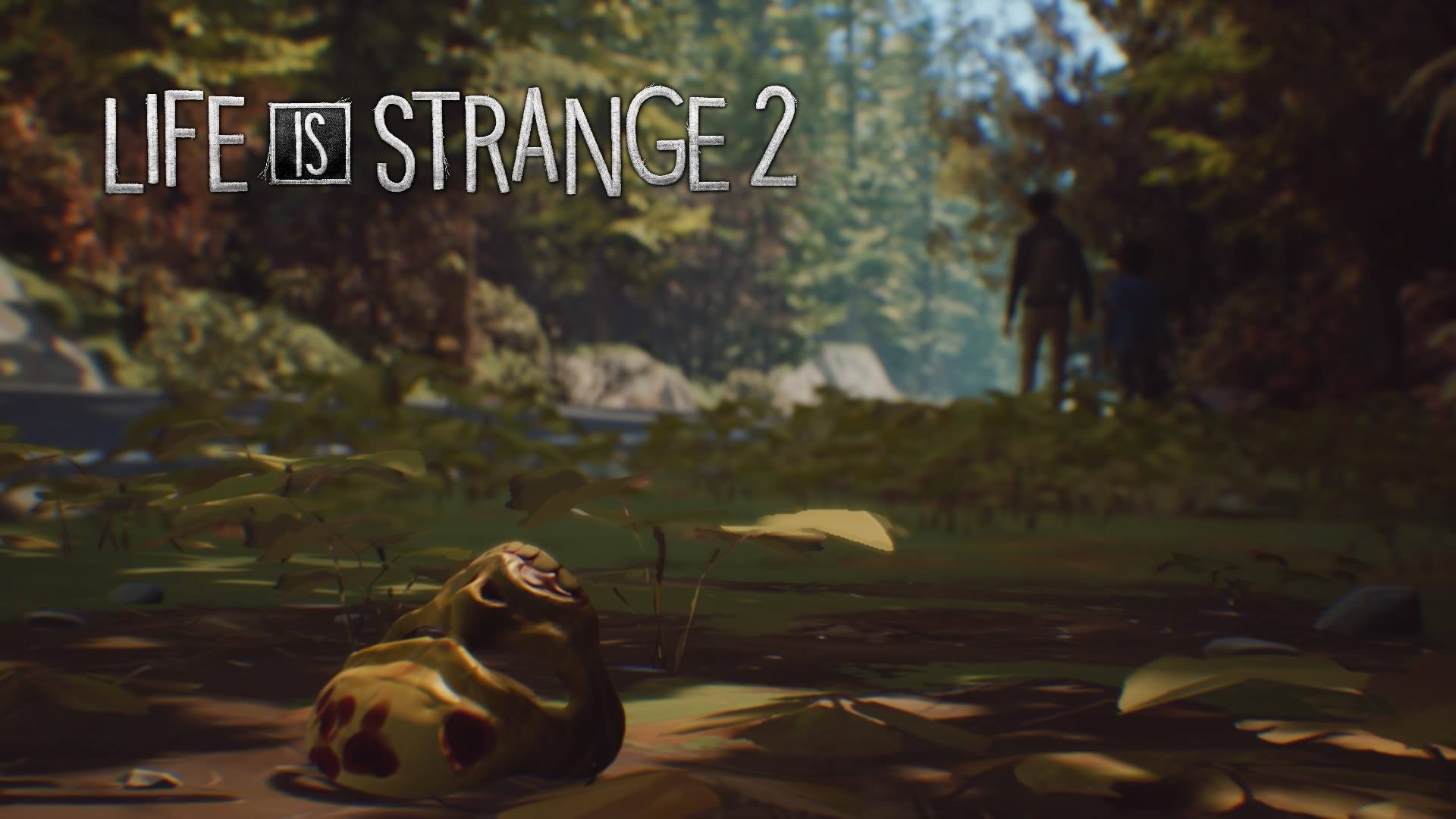
The first outing in the new season of Dontnod Entertainment’s breakout hit quickly showcases the ways that their sequel series differs from the original. Life is Strange built its story on the scaffolding of its setting. The pleasantly kitschy town of Arcadia Bay oozed charm, but potent evil bubbled just below the surface. As you explored room after room, listening to protagonist Max Caulfield share her thoughts about every item you clicked on, Life is Strange built a homey sense of place, even as darkness descended at an alarming rate. When, you made the final choice—save the town or the best friend—it was a genuinely affecting dilemma. You loved both.
Leaving Arcadia Bay
Life is Strange 2, at first, pretends to be the same kind of game. This time around you’re Sean Diaz, a Mexican-American teenage boy, spending a few post-school hours preparing for a party at a friend’s cabin later that night. You steal soda and chips from the kitchen. Grab free sex-ed condoms and a one-hitter from your bedside table. Bum some money off your dad.
As you perform these mundane tasks, you get to know the Diaz residence, soaking in the little details. Sean spots a postcard from his dad’s hometown in Mexico and says he doubts he’ll ever get to see it in person. He walks by his brother Daniel’s headset on the floor and remarks that Daniel screams into it for hours while playing Minecraft. The gameplay throughout “Roads” is mostly limited to walking around, clicking on highlighted objects and making dialogue choices. But, these simple mechanics play to Dontnod’s strengths. In the three years since Life is Strange came out, the studio’s writers have honed their craft. They’ve eschewed the embarrassingly on-the-nose teenage slang (“hellas,” so many “hellas”) and the hamfisted dialogue that often hampered the series’ debut, for a surprisingly mature subtlety.
Dontnod Grows Up
We first glimpsed this evolution in June when Dontnod released The Awesome Adventures of Captain Spirit. It was a free, episode-length game, which provided a poignant look at the relationship between a sweet, creative kid and his grieving, abusive, alcoholic father. Now, in Life is Strange 2, Dontnod has turned its attention to Mexican-American life, and they have succeeded in creating a convincing, stereotype-skirting portrait of one Latinx family’s experience. It’s easy to imagine a lesser developer going broad, peppering the space with calaveras and crucifixes as shorthand for “Mexican immigrant family lives here.” But, in the Diaz household, a flat screen TV and console, not a cross, sits in the place of honor. The only piece of religious imagery in the house is a blink-and-you’ll-miss-it icon of the Virgin Mary in the workshop where Sean’s father fixes up cars.
Life is Strange 2 is just as successful when it turns its attention to capturing snapshots of American teenage life. AAA games have consistently nurtured the fantasies of teenage boys—big boobs, bigger guns—but have rarely put in much effort to honestly depicting their realities. Life is Strange 2 remedies that. Sean feels like a real person whose personality is still (appropriately) in flux. He’s a talented artist with a sketchbook full of promise. We feel his irritation as Daniel interrupts his Skype call with a friend; his anxiety as we check his phone and see that the girl he likes still has him on read; and his excitement and nerves as he gets ready for the party.
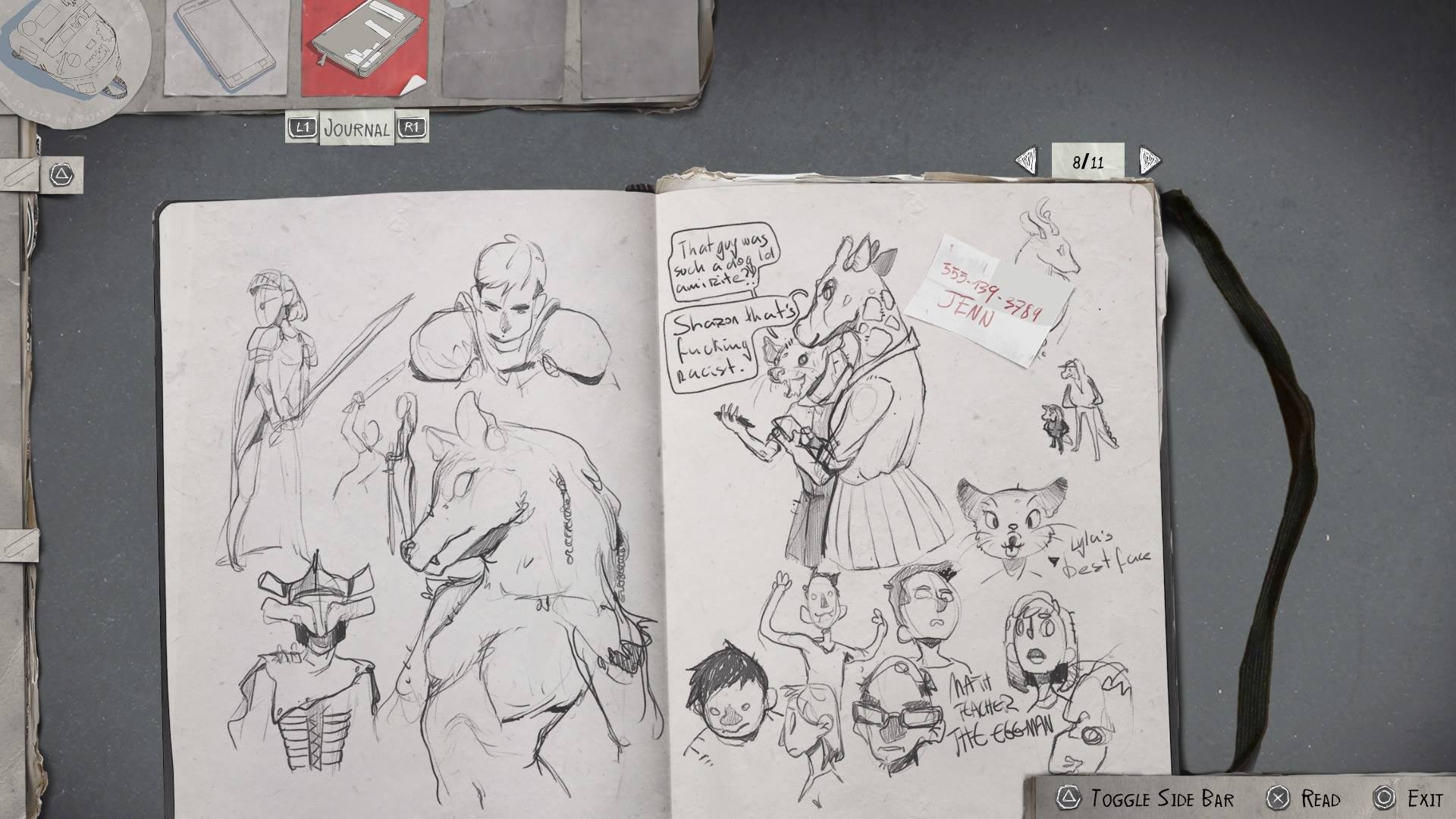
And, then Life is Strange 2 shows us what kind of game it actually is.
Keep Moving
A butterfly flapped its wings in the corner of each loading screen in the original Life is Strange. It was a reference to the “Butterfly Effect,” a tenant of chaos theory that posits that seemingly inconsequential actions can blossom to have world-changing results later on. Life is Strange 2 trades that butterfly in for a pair of wolves, charging along the bottom of the screen.The butterfly stayed in place as changes rippled out from its wings. These wolves keep moving at all times, leaving whatever consequences they may in their wake like pawprints.
And the consequences that befall our wolves are dire. Sean never makes it to that party. A tragic run-in with a police officer sends Sean and Daniel deep into the woods of the pacific northwest, on the run from law enforcement. Daniel doesn’t fully grasp what he and his brother are running from, and only Sean knows that he’s guiding them to his father’s hometown in Mexico. Life is Strange was limited to Arcadia Bay and we got to know the places and people that gave it its character. But, in Life is Strange 2, as Sean and Daniel carve a vertical slice through the country, nothing is off the table. This premise has a surprising power. Who knows where we’ll go? Who knows who we’ll meet?
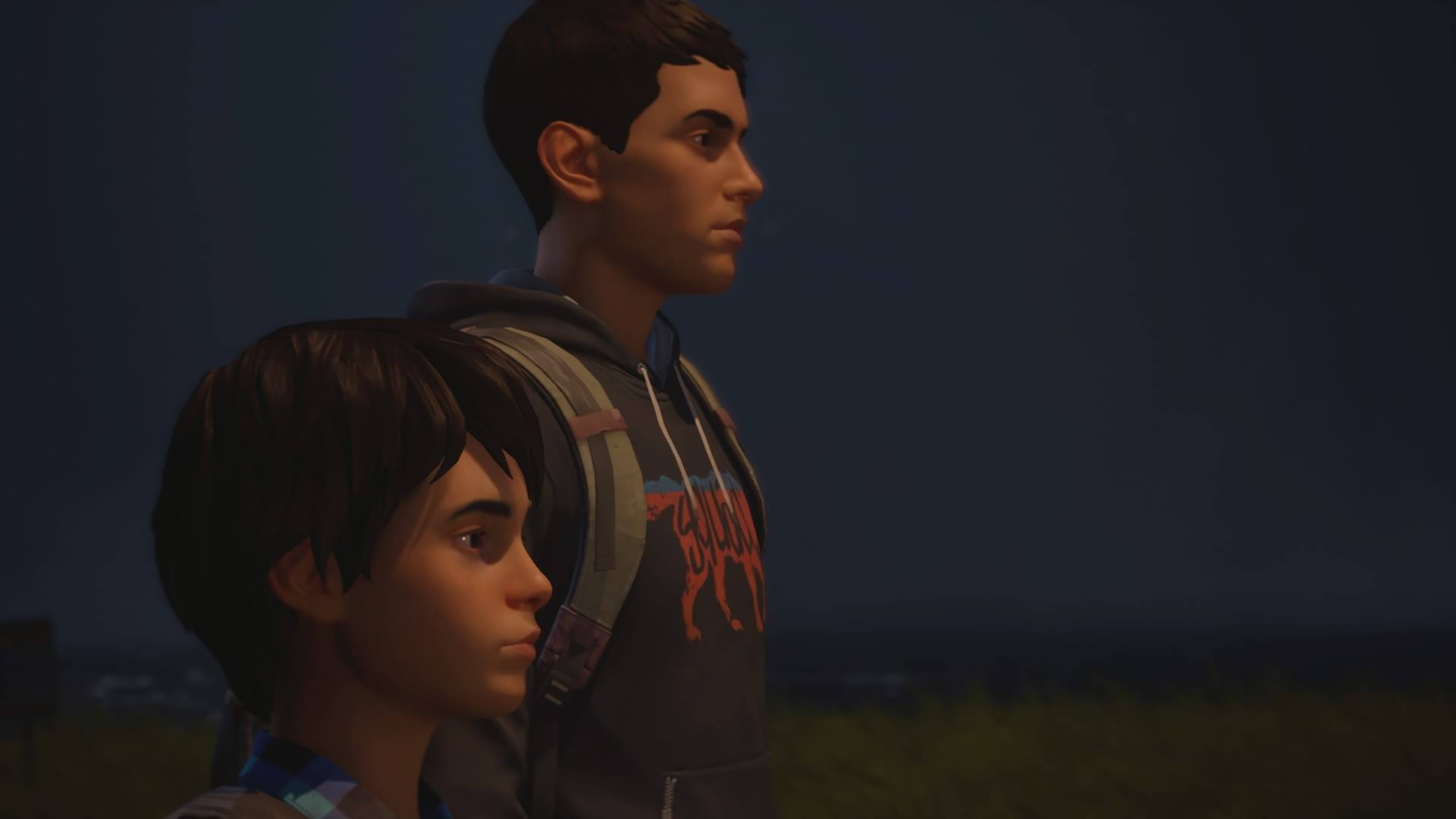
Good Looking Out
In the absence of Arcadia Bay, Sean and Daniel become our home. We, like the brothers charging across America, don’t know where this story will take us. So, we find rest in the characters that keep us company along the way. The early moments in the Diaz house imbue the rest of “Roads” journey with a longing for what was left behind. We, like the Diaz brothers, won’t get to see how that story plays out. We only have each other now.
The game cleverly builds this relationship out through its mechanics. For much of “Roads,” you and Daniel will simply explore the same space, looking for food, or a campsite, or a map, etc. In these moments, it can be tempting to run ahead, to optimize our efficiency and reach the next story beat quickly. But, Daniel moves slowly, pausing to gawk at animals or to inspect the berries growing along the side of the path. If you move too quickly, you’ll miss out on interesting/heartwarming/frustrating character-building interactions with your brother. Dontnod rewards you with a better game if you take the time to be a better big brother.
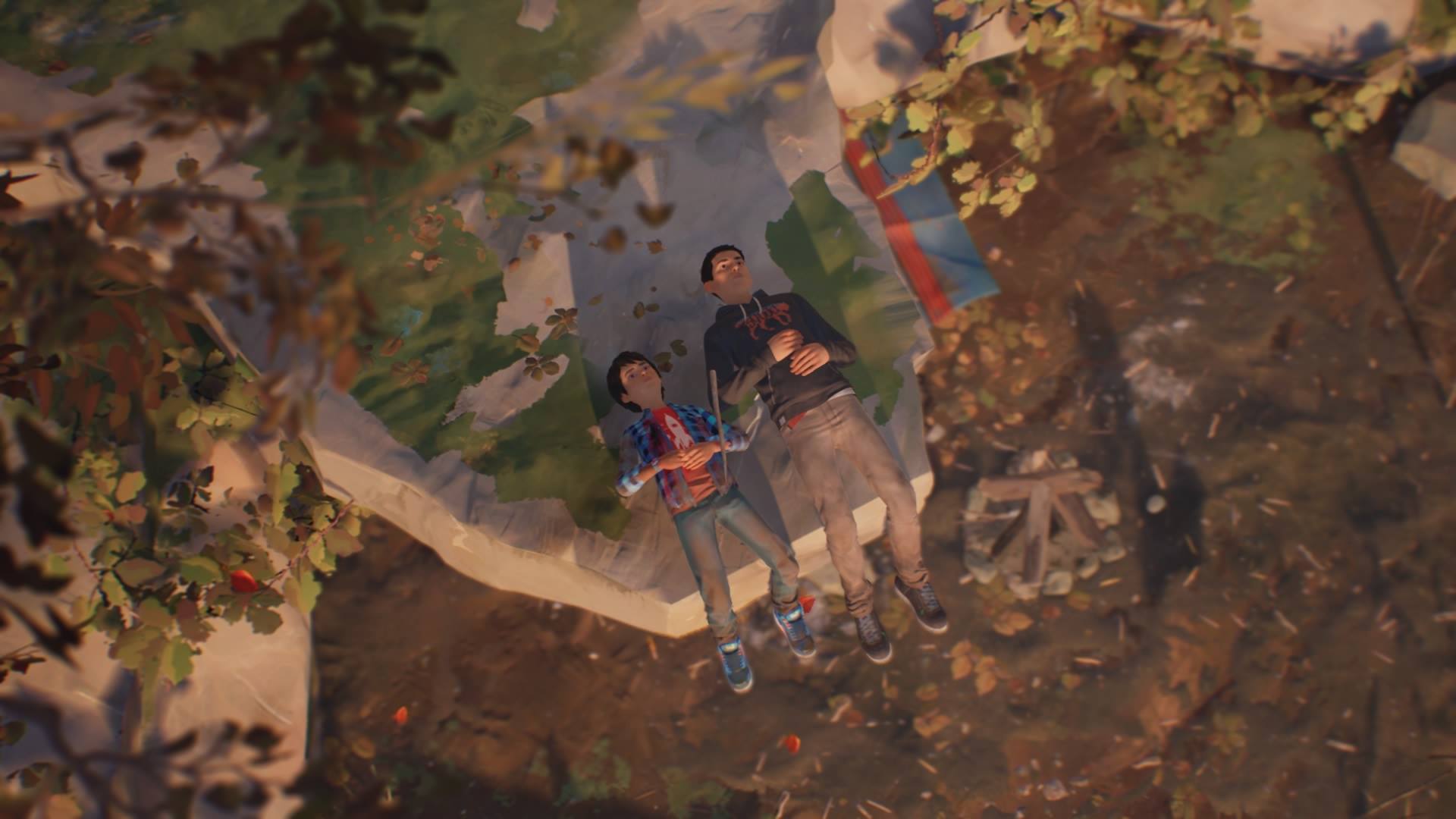
In the first episode, you’ll meet good people and bad people; people who want to help the Diaz brothers, and people who want to see them come to “justice.” If you’ve lived in America for the past few years, these characters will be uncomfortably familiar. Life is Strange 2 has inserted itself into the current political conversation in a surprisingly brazen way. It’s an undeniably risky move for publisher Square Enix to take, but one that makes Life is Strange 2 an important work, not just a good game.
*Fingers Crossed*
And, let’s be clear, so far at least, this is an excellent game. Life is Strange 2 is bold, ballsy, and wildly ambitious, promising an epic and personal odyssey across America circa October 2016. Dontnod is capturing the mood of a powerful country in the midst of a crisis of identity. If they can stick the landing, Life is Strange 2 has the potential to be a masterpiece.
That’s a big if. The butterfly may have flown away from the loading screen, but we still feel its influence. Small decisions now will result in huge consequences a few months from now when Life is Strange 2 draws to its conclusion.
For what it’s worth, though, Dontnod is nailing all the small decisions.
Life is Strange 2, Episode 1 “Roads” review code provided by publisher. Version 1.0 reviewed on a base model PS4. For more information on scoring please see our Review Policy here.
-
Excellent, nuanced writing throughout
-
Strong characterization shown through dialogue and mechanics
-
Gorgeous environments
-
Stellar soundtrack
-
An audacious, epic opening that left me breathless for the next installment
-
This first episode is so great, I worry the rest won't live up to it.
Life is Strange 2 Review
-
Life is Strange 2

The Diaz brothers make themselves at home at a campsite.
-
Life is Strange 2
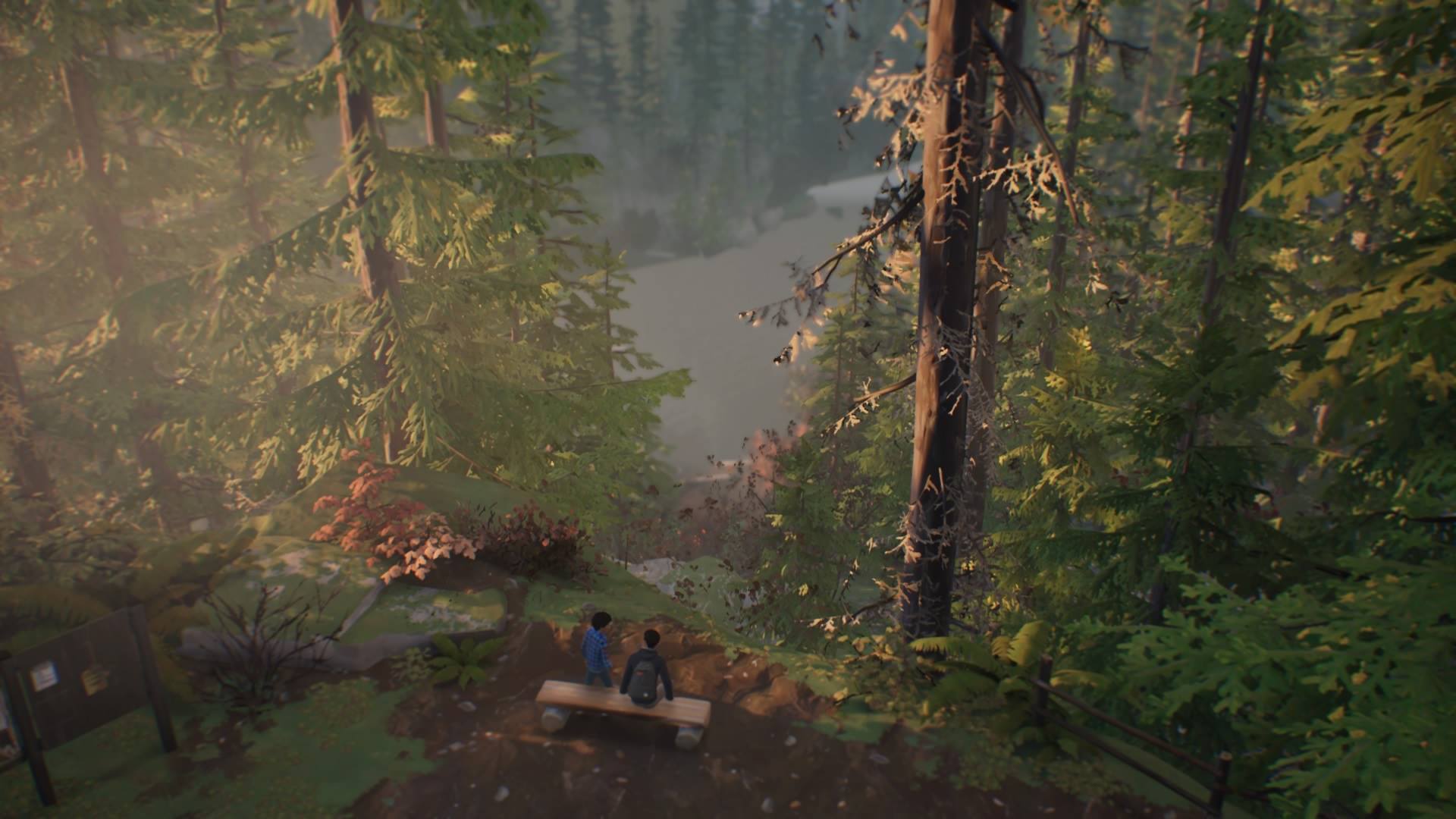
Life is Strange 2 has some breathtaking sights.
-
Life is Strange 2
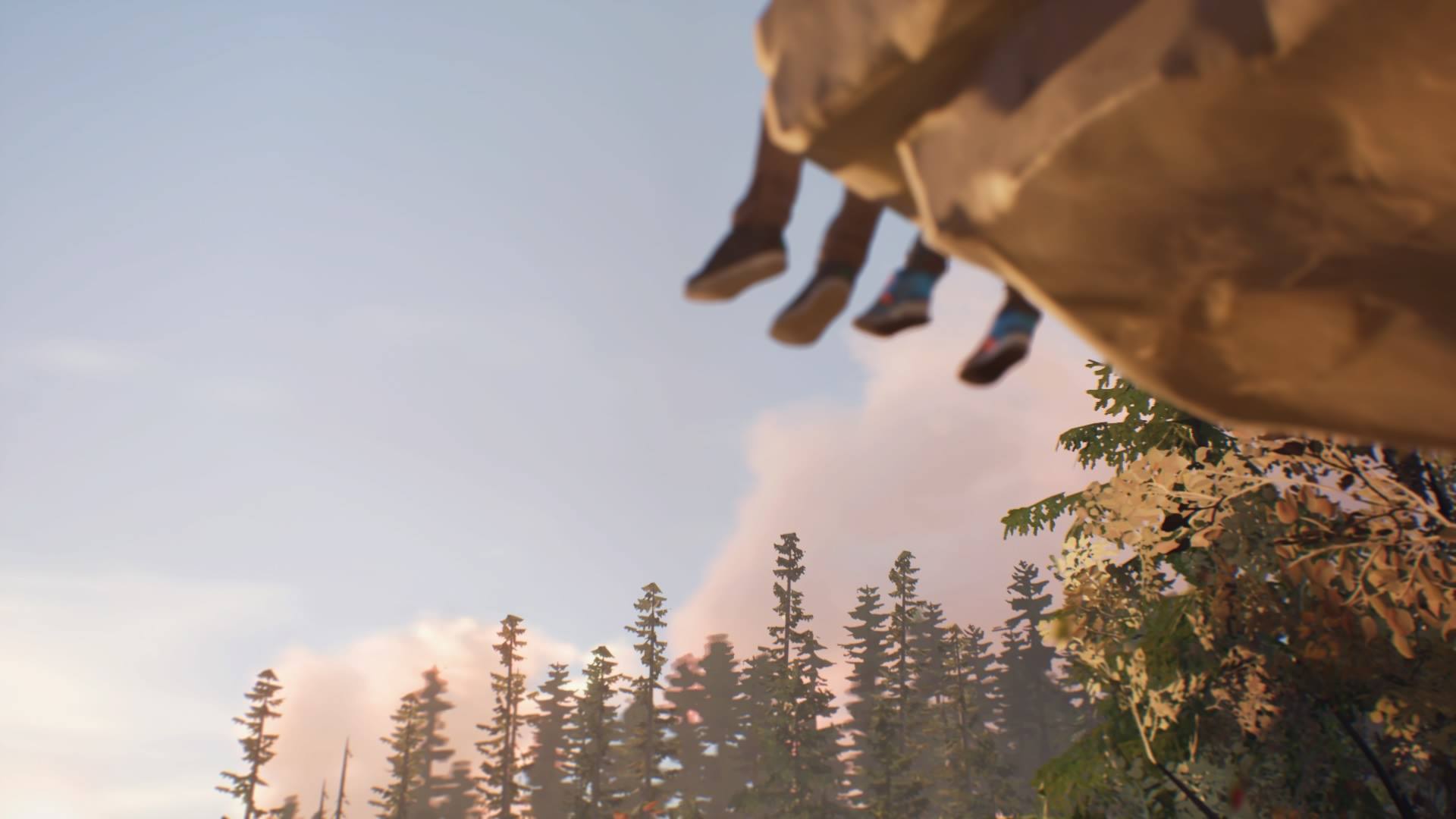
The Diaz brothers enjoy a quiet moment.
-
Life is Strange 2

Sean and Daniel head down the road.
-
Life is Strange 2

Sean Diaz, like Max Caulfield before him, is a talented artist.
-
Life is Strange 2

The Diaz brothers face an uncertain future.
